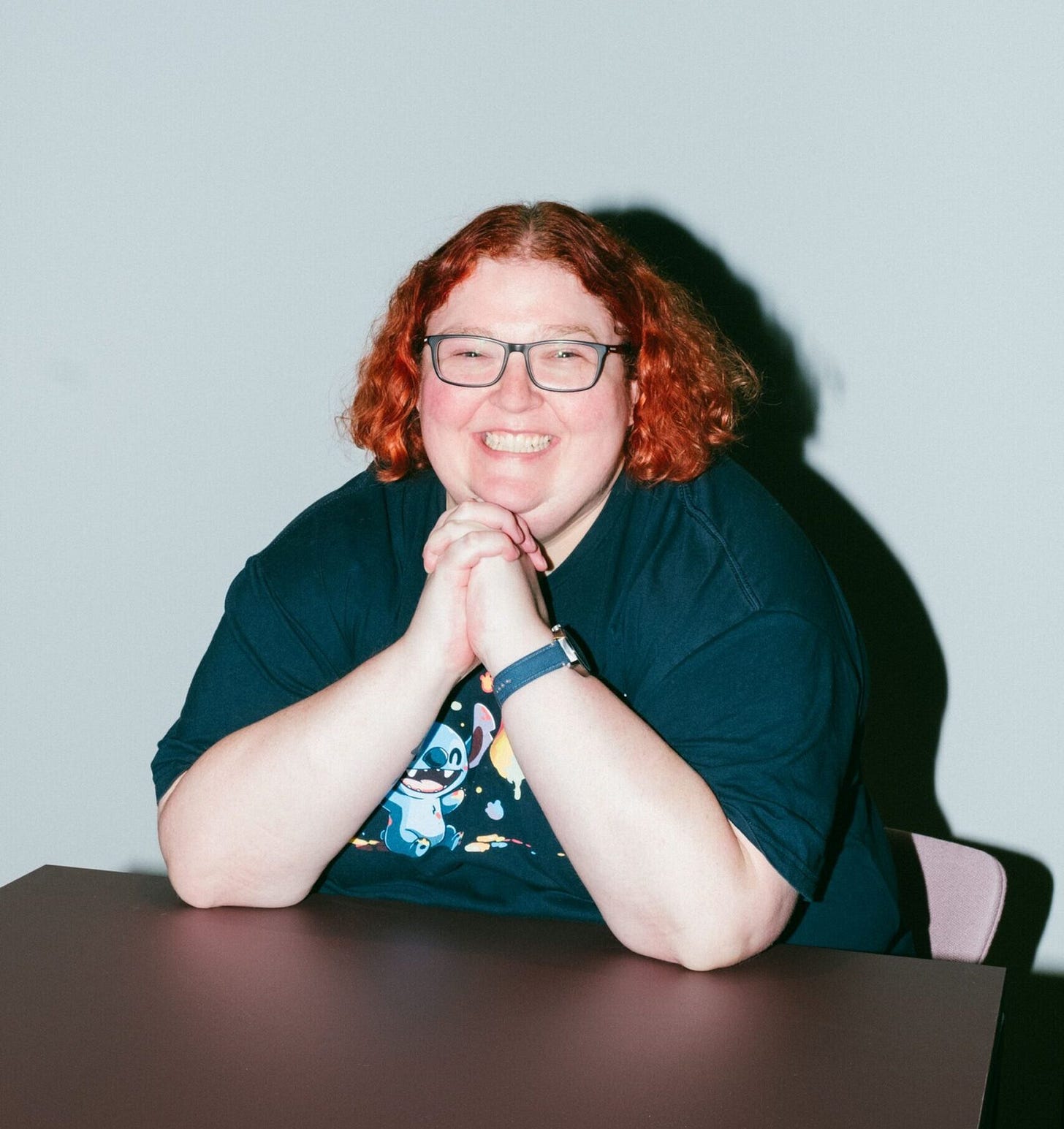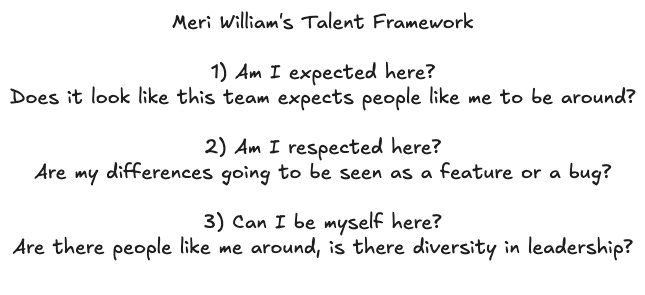Underrepresented folks in tech are like the future. We're here, but not evenly distributed.
There's been a lot of DEI bashing in recent times, but there are still folks beating the drum about its importance in hiring. Meri Williams, CTO @Pleo and formerly Monzo, is one of those voices.
“Why are we unable to attract women applicants?”
Early on in my career, I sat on a hiring panel where this was a question asked by a senior exec. As one of the more junior members of the panel, I thought to myself, "The answer is pretty obvious", but I didn't speak up.
Let me explain.
I was in a team of all male ex-consultants. Aside from me, that is (no background in consulting). Unsurprisingly, the consensus was that hiring ex-consultants from a specific group of "elite" consultancies was the right thing to do.
I'd often think: we have enough consultants, why not bring in more diverse perspectives?
But, too inexperienced to have found my voice and definitely in the minority, I held back from saying what I thought: Maybe consider a world where not all great hires need to come from an 'elite' consultancy?
One thing I learnt from this experience: you can have all the diversity training you want, unless you have a diverse panel, good luck navigating your blind spots – you likely end up with "group think" like the hiring panel I sat on all those years ago.
Meri Williams has been a real advocate for diversity in hiring. They are one of the leading voices in tech, not only because they are a rarity: a non-binary technical leader, but also because they support women and non-binary people in accessing STEM education through their charity 'One Goes Up'.
We cover:
AI in recruiting
Meri's frameworks and advice for hiring and developing teams
Tactical tips for companies looking to invest in DEI
Tactical tips for candidates from underrepresented backgrounds
AI in recruiting
I find myself conflicted when it comes to AI. On the one hand, I've never been this excited about work in my life: I wake up every morning wondering "what's possible today that hasn't been possible until recently".
But in recruiting, most AI startups remind me of the quote: "Just because you can, doesn't mean you should".
Meri articulates precisely why I feel this way:
“
It's reinforcing biases that already existed. Researchers train these models on past decisions. Since those are biased, we can only expect the same outcome.
Even if you erased the "first-line bias" by taking people's personal details from their resume, the way people from diverse backgrounds represent themselves is different because they're so used to being doubted and viewed as less competent.
Taking a process that was already pretty broken and sprinkling AI on top doesn't help. So what does Meri do instead?
“
We're combating these biases by doing more outreach, actively searching for candidates to make sure we don't miss out on great people. We're also making sure that our job specs are even-handed and use the right mix of masculine and feminine terminology.
We have a program for associate engineers, and we welcome people from different backgrounds. For example, we hired someone in customer ops who taught themselves to code.
Meri's frameworks and advice for hiring and developing teams
So what does it look like to successfully run outreach to ensure a diverse talent pool?
“
It helps if whoever does outbound looks similar to the target audience. I end up sending outreach messages myself because it's so unusual for someone perceived as a woman to be a CTO that it gets noticed.
They then break down the three questions that people ask when deciding whether to join somewhere, stay somewhere, say yes to a promotion or leave:
Tactical tips for companies looking to invest in DEI
Meri then breaks each of these down into more tactical suggestions.
Am I expected here? For example, providing details about what you should expect before an interview. At Monzo, they'd say "the nearest tube station is noisy, so bring noise-cancelling headphones. Small gestures go a long way. Also, ensure that the employees on your website represent the diversity within your company.
They share a personal story about having a physical disability that means they are occasionally on crutches. They've never interviewed anywhere, which lets them know ahead of an interview whether they'd be able to get around on the day, for example.
Am I respected here? It's important to give your existing team unconscious bias training, so they do not put off candidates at the interview stage or otherwise.
I cringe to think about how low the bar is. LinkedIn is full of jobs calling for “rockstars". Rockstars?! They throw up on people and break things, not exactly the traits you'd want in a colleague (Meri's gets all the credit for that sentence; I laughed a lot).
Can I be myself here? The more you can do to show, for example, that you have a diverse leadership team, the better. If your leadership team is wearing matching underwear to go with their matching haircuts and ties…
It also comes down to the smaller details, like what kind of benefits you offer. If your benefits are foosball Wednesdays and beer Fridays, is it that surprising that people with kids aren't interested?
Tactical tips for candidates from underrepresented backgrounds
“
Find those who look like you and find out where they work. Underrepresented folks are like the future; we're here, but not evenly distributed. Some places are better for us and you'll see folks from diverse backgrounds congregating.
Great advice. If companies care about DEI, they'll walk the walk: leadership will be diverse. And even better, you can reach out to those folks, as mentioned below:
“
When people have reached out and I've gotten to know them a bit, I'm happy to advocate for them. Getting to know them is important, though, since you're putting your reputation on the line for them.
I usually prefer when candidates are willing to invest a bit of time before asking for a straight referral.
Some candidates refuse to reach out for fear of rejection. Others reach out too freely and end up spamming. You want to be somewhere in the middle, being deliberate about who you target and crafting a thoughtful outreach message.
“
Show people how you think. Go to meetups and code bars. Write a Substack. Show potential employers how your mind works.
As we've heard from countless experts in this newsletter: show, don't tell.
Wrap up
Whether you're an employer trying to hire from diverse backgrounds or a candidate from an underrepresented background, it’s not as simple as you might think.
Meri makes a final point that sticks with me:
“
You can't hire someone from a diverse background and expect them to change your company for the better.
It's not diversity then inclusion, it's inclusion then diversity.
So if you're an employer reading this, thinking about how you can hire from a diverse background, get to work and remember: there are no shortcuts.


